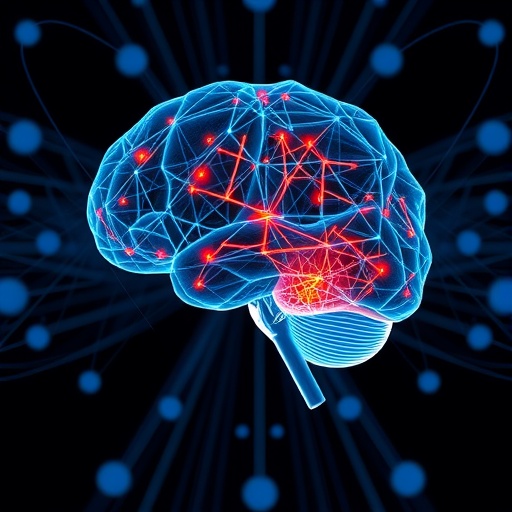In a groundbreaking advancement at the intersection of artificial intelligence and psychiatric medicine, a team of researchers from Xiamen University and affiliated institutions in China has introduced an enhanced model based on DenseNet architecture named MentalAId. This innovative AI-driven framework aims to revolutionize scalable psychosis assessment, promising to transform how mental health conditions are diagnosed and monitored across diverse populations.
Psychosis, characterized by disruptions in perception and cognition including hallucinations and delusions, remains a challenging condition for clinicians due to its heterogeneous manifestations and the extensive resources required for comprehensive assessments. Traditional diagnostic methods can be subjective and time-intensive, often resulting in delays or inaccuracies in patient care. The MentalAId model addresses these limitations by offering a more objective, efficient, and scalable diagnostic approach through deep learning.
DenseNet, a type of convolutional neural network known for its powerful feature propagation and efficient parameter use, serves as the backbone of MentalAId. The researchers have meticulously refined the DenseNet architecture to better capture subtle neuroimaging biomarkers and clinical data patterns indicative of psychosis. This advancement allows the model to differentiate with higher fidelity between psychosis subtypes and stages, an imperative step toward personalized psychiatric treatment.
One of the pivotal contributions of MentalAId lies in its capacity to integrate multimodal data inputs, ranging from structural and functional brain imaging to clinical histories and behavioral assessments. By leveraging this rich dataset, the model transcends the limitations of single-modality analyses, capturing complex and nuanced patterns that humans might overlook. This multi-dimensional approach enhances both sensitivity and specificity in psychosis detection.
Robust validation of MentalAId was performed through extensive datasets sourced from clinical cohorts across multiple institutions. The model consistently outperformed existing diagnostic algorithms, demonstrating superior accuracy and generalizability. Such performance indexes suggest that MentalAId could become an essential tool in real-world clinical settings, enabling earlier intervention and improved prognosis for individuals at risk for or already experiencing psychosis.
Beyond diagnostic accuracy, the scalable nature of MentalAId signals a paradigm shift in mental health service delivery. The AI system can be deployed in resource-constrained environments, expanding access to high-quality mental health assessment tools in underserved communities. This democratization of psychiatric evaluation could alleviate global disparities in mental health care and foster timely, data-driven therapeutic decisions.
The development process of MentalAId also highlights the importance of interdisciplinary collaboration. Experts in neuroscience, psychiatry, computational science, and data engineering pooled their expertise to refine the model architecture and interpret its clinical outputs. This cross-disciplinary synergy ensures that the AI tool remains clinically relevant and scientifically rigorous, bridging gaps between cutting-edge technology and patient-centered care.
A critical aspect of implementing such AI systems involves ethical considerations, including patient privacy, data security, and transparency in algorithmic decision-making. The researchers underscore their commitment to these principles by incorporating robust anonymization protocols and advocating for explainable AI methods. This transparency fosters clinician trust and facilitates regulatory approval pathways for clinical deployment.
Looking forward, MentalAId is poised to be integrated with electronic health records and telepsychiatry platforms, enhancing its utility in continuous patient monitoring and remote assessment. Such integration aligns with the growing trend toward digital mental health solutions, promising a future where AI augments clinician expertise and personalizes psychiatric intervention strategies.
The successful correction and publication of the MentalAId study in the esteemed journal BMC Psychiatry mark a significant milestone in psychiatric informatics research. It paves the way for future studies aimed at refining AI architectures and expanding their application to a broader spectrum of neuropsychiatric disorders beyond psychosis, including mood and anxiety disorders.
In an era where mental health challenges are escalating globally, technological advances such as MentalAId provide hope for scalable, accurate, and accessible diagnostic modalities. This AI model signifies a paradigm shift, wherein the fusion of deep learning and clinical neuroscience catalyzes new horizons in understanding and managing complex psychiatric conditions.
The research embodies a meticulous pursuit of scientific excellence, exemplifying how technological innovation, when grounded in clinical necessity, can lead to impactful solutions addressing the pressing needs of mental health care worldwide.
Subject of Research: Development and validation of an enhanced DenseNet-based AI model for scalable psychosis assessment.
Article Title: Correction: MentalAId: an improved DenseNet model to assist scalable psychosis assessment.
Article References:
Li, M., Liu, F., Du, F. et al. Correction: MentalAId: an improved DenseNet model to assist scalable psychosis assessment. BMC Psychiatry 25, 1062 (2025). https://doi.org/10.1186/s12888-025-07358-2
Image Credits: AI Generated




